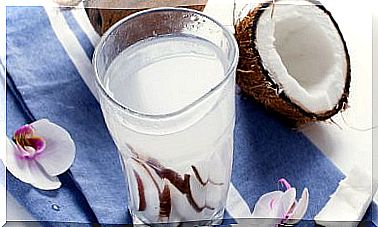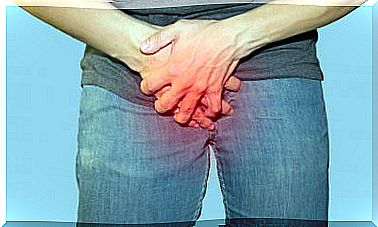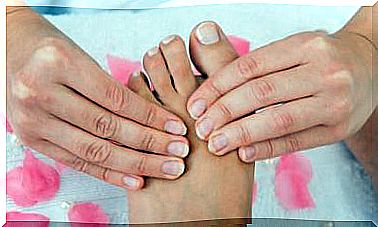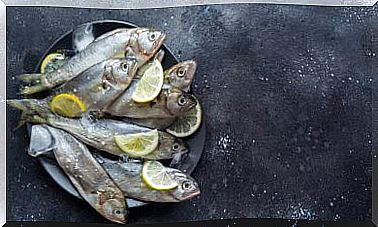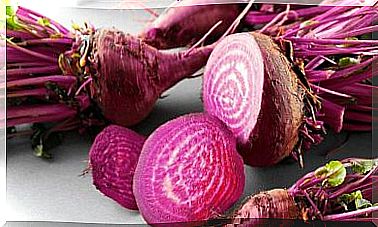4 Natural Remedies For Fluid Retention
Fluid retention is a very common complaint whose cause must be determined and treated by a doctor.

Putting your legs up for a few minutes each day at the end of the day, maintaining good hydration, reducing salt intake and, in short, maintaining good habits of life, is what will make us enjoy well-being and not have problems such as retention of liquids.
Drops (better known as ‘fluid retention’) is a very common complaint. It can be caused by a variety of reasons, from a diet rich in sodium to a sedentary lifestyle. It should never be overlooked as it could indicate cardiovascular or kidney problems.
Once its cause is determined, it is important to improve habits and begin to adopt a truly healthy lifestyle. We will tell you more about it below.
Causes of fluid retention
Fluid retention is not a disease as such, but a symptom. As we mentioned before, it can occur for various reasons. For example, due to a sedentary lifestyle, a low intake of water and other liquids, a diet rich in salt, etc.
Fluid retention is produced by the regulatory imbalance of their passage between different areas of the body. That is, it appears when the body is unable to eliminate excess fluids through the excretory system.
The following factors influence this process:
- Obesity.
- Sedentary lifestyle.
- Kidney deficiencies
- Liver problems
- Bad stomach conditions.
- Hormonal alterations: premenstrual syndrome, pregnancy, menopause, etc.
How to recognize fluid retention?
To know if we really present an accumulation of substances in the body, we must review the following indicators:
- General tiredness
- Heaviness (especially in the legs).
- Swelling and discomfort in the abdominal area.
- Gradual swelling in the lower extremities.
- Inflammation in other areas of the body (this is more unusual, but can occur).
Natural remedies for fluid retention
Below we will tell you what are the natural remedies that you can resort to in case of fluid retention. For the most part, these are natural, very simple solutions.
1. Drink water
Hydration is important for the body, even with fluid retention. Therefore, although it may seem contradictory, it is necessary to try to drink more water to obtain relief. Otherwise, other substances will be stored there for a longer time.
If we do not drink more water, the organism favors the automatic storage of liquids, in order to prevent an unexpected need.
2. Green tea

Foods and drinks with a diuretic effect are considered to be good alternatives for those with fluid retention, and among them, green tea is one of the most popular options.
Green tea is a drink rich in antioxidants that can be beneficial to your health in several ways. It is advisable to consume it in moderation, always 40-45 minutes after a main meal so that it does not interfere with the absorption of nutrients.
3. Eat pineapple
Pineapple is delicious and juicy. This is one of the reasons why it is one of the most consumed fruits on the planet, especially during times of high temperatures.
However, this is not eaten only for its great taste, but there are also those who consume it for the amount of water it contains and, by extension, its diuretic effect.
4. Infusion of parsley
As a complement, you could drink an infusion of parsley. This would contribute to the hydration of the body and stimulate urination, thus helping to expel the retained fluids. To prepare it you will need:
Ingredients
- 1 glass of water (250 ml).
- 1 tablespoon of parsley (10 g).
Preparation
- Boil the water.
- Add the tablespoon of parsley, cover and let it infuse for a few minutes.
- Consume once it is warm, mid-morning or mid-afternoon, but always within a balanced diet.
Note : if you do not want to consume an infusion, you can resort to smoothies and fruit juices rich in water, such as melon and watermelon, for example.
Other remedies for fluid retention basically consist of hydrating drinks with a diuretic effect. The ponytail is a very popular option that you can try.
Other alternatives

To combat fluid retention, it is also advisable to do physical activity on a daily basis. At least 30 continuous minutes (which equates to approximately 10,000 steps).
You can resort to dance therapy, hiking, jogging , swimming and any other sport that you like. The important thing is to stay active and abandon sedentary lifestyle.
Stay active and hydrate well
As you can see, the natural remedies for fluid retention that we have discussed can be a good complement, but never a single solution to the problem.
Therefore, it is essential that you always maintain good lifestyle habits and follow the doctor’s instructions. And if you have any questions, the best thing to do is to resolve the doubt with the professional. This way you will always take care of your health.
